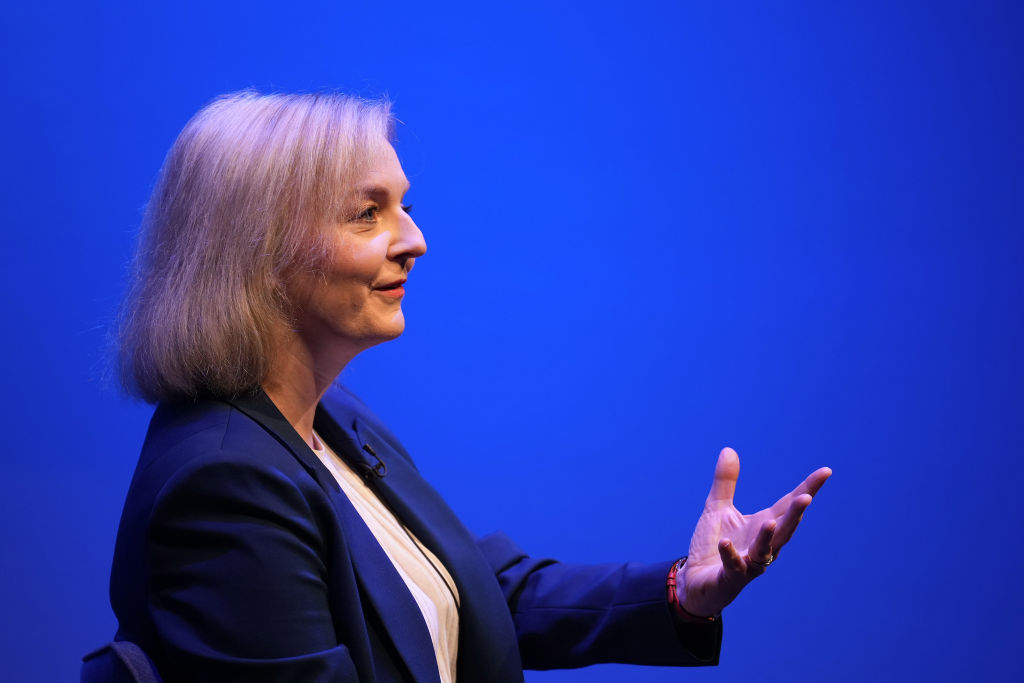Britain is “already a socialist country”, Liz Truss claimed at Conservative Party conference early this afternoon.
Speaking to journalist Tim Stanley in Birmingham, the former prime minister said that “we’re already in socialism”, a process exacerbated by the Labour government “spending 45% of GDP” and through having “huge swathes of the economy controlled by regulation and the bureaucracy”. She added that the UK’s socialist turn started under the Conservatives, during a period when the country “had record taxes” and “state spending of 45%”.
In her only appearance at this year’s party conference, Truss accused Keir Starmer’s Labour of saying “we need more taxes, we need bigger government, we need more regulation”. She also stated that, despite Brexit, “Britain has become more of a European-style economy and less of a capitalist economy over the past 14 years” — dating to the Conservatives’ general election victory and entry into coalition with the Liberal Democrats in 2010.
Pinning blame on the Tories as well as their successors in Downing Street, the former Conservative leader argued that “I don’t think we can say that all the problems Britain has now are to do with the terrible government of the Labour Party.” While she referred to Labour’s analysis of national decline as “totally flawed”, Truss acknowledged that her own party “failed to take on the Blairite-Brownist statist orthodoxy”.
Truss today extended her criticism to “state institutions”, citing the Treasury, the Bank of England and the Office for Budget Responsibility as examples of organisations whose groupthink holds sway over Westminster. She alleged that “successive Conservative governments went along with the economic orthodoxy, loose monetary policy, giving control to the Bank of England, accepting the judgements of the OBR”, and suggested that the party “outsourced economic policy so it wasn’t being decided by the Chancellor”. Truss also singled out Bank of England Governor Andrew Bailey as “unsackable”, claiming that he should receive far more “media scrutiny”.
In an interview in which she also blamed Nigel Farage’s Reform UK for causing her to lose her seat in July’s general election. She also argued that “there is a battle now to save not just Britain, but Western civilisation”, with her at the forefront, suggesting that the British establishment has gone from being run by “fuddy-duddy conservatives” to “the liberal Left”. As well as the Tories allegedly proving powerless to prevent the march of socialism in the UK, the former PM argued that “there’s been a cultural battle that conservatives have failed to stand up to.”
Many of the arguments expounded on by Truss in Birmingham this afternoon were made in book published earlier this year, shortly before she lost her seat in South West Norfolk, Ten Years to Save the West. As well as claiming today that Britain was a socialist country, Truss said the same of Australia, the United States, Canada, France and Germany. As for the Tories, her assessment could be shortened further: “We are no longer the party of the establishment.”











Join the discussion
Join like minded readers that support our journalism by becoming a paid subscriber
To join the discussion in the comments, become a paid subscriber.
Join like minded readers that support our journalism, read unlimited articles and enjoy other subscriber-only benefits.
Subscribe